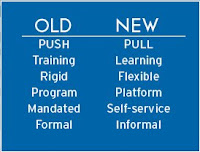
(ISCED)?
Just as the International Standard Classification of Occupations (ISCO) and the International Standard Industrial Classification of all Economic Activities (ISIC) are indispensable for international comparisons of economic activities, the International Standard Classification of Education (ISCED) is the universally adopted system for comparing educational programmes across countries. It is imperative that countries use this classification and adhere to the requested format when providing data on educational attainment to the UIS. Data by national programme name or grade are not comparable; therefore they are unsuitable for processing, analysis and international dissemination.
How to apply ISCED to the national education system?
Classifying national programmes according to ISCED does require an in-depth knowledge of both the classification and the national education system. Many Ministries/Department(s) of Education have already “mapped” their respective education systems to ISCED, in order to provide enrolment, graduation and other school-based data to UNESCO. UIS wishes to encourage National Statistical Offices to consult with their respective countries’ Ministries/Department(s) of Education in order to obtain guidance on this matter. This will also ensure that there will not be any discrepancies between the classifications produced by Ministries of Education and those produced by National Statistical Offices.
ISCED 0 Pre-primary Education
This is the initial stage of organised instruction designed primarily to introduce very young children to a school-type environment. Such programmes are school- or centrebased (which distinguishes them from childcare programmes) and are designed for children aged at least 3 years.
ISCED 1 Primary Education (or the First Stage of Basic Education)
This stage marks the beginning of systematic studies in reading, writing and mathematics. Programmes are normally designed on a unit or project basis (often with one teacher for all or most of the time) rather than on a subject basis (with different teachers for different subjects). The customary or legal entry age to this level is usually
not less than 5 years and not more than 7 years.
ISCED 2 Lower Secondary Education (or the Second Stage of Basic Education) This stage usually marks the beginning of subject based teaching (with different teachers for different subjects). It is designed to complete the provision of basic education which began in ISCED 1 and to lay the foundation for life-long learning. The full implementation of basic skills occurs at this level.
ISCED 3 (Upper) Secondary Education
Even more specialisation is observed at this level than at ISCED 2. Teachers usually need to be more highly qualified than those teaching in ISCED 2. This stage often begins at the end of compulsory schooling. The entrance age is typically 15 or 16. The entrance requirement is usually successful completion of ISCED 2.
ISCED 4 Post-Secondary Non-Tertiary Education
This stage captures programmes which straddle the boundary between upper secondary and post-secondary education. In some countries such programmes may be regarded as upper secondary education and in others post-secondary. The content of such programmes is not sufficient for them to be regarded as tertiary programmes. They are often not significantly more advanced than programmes at ISCED 3 but they serve to broaden the knowledge of students who have already completed an ISCED 3 programme.
ISCED 5 First Stage of Tertiary Education
This level consists of programmes whose educational content is more advanced than that offered at ISCED 3. Entry to these programmes requires the successful completion of programmes at ISCED 3A, 3B or 4A. This stage is further sub-divided according to the destination for which the programmes have been designed:
ISCED 5A programmes are largely theoretically based and are intended to give access either to the advanced research programmes found in ISCED 6 or to professions with high skills requirements (e.g. medical doctors). It may be necessary to take more than one qualification at ISCED 5A (e.g. a Bachelor’s and then a Master’s) before entering ISCED 6.
ISCED 6 Second Stage of Tertiary Education
This level is reserved for programmes which lead to the award of an advanced research qualification (usually at the doctorate level or beyond). The programmes are devoted to advanced study and original research and are not based on course-work alone. For further reference, please consult the “International Standard Classification of Education ISCED 1997”, available at the following Internet address:
http://www.uis.unesco.org/TEMPLATE/pdf/isced/ISCED_A.pdf













